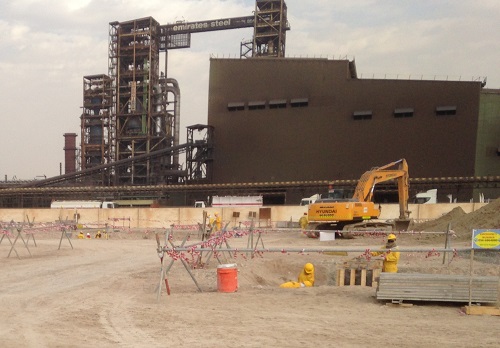Insights and Commentaries
Adding CCS to the energy mix in the UAE
15th March 2015
Topic(s): Carbon capture, Economics, Engineering and project delivery, use and storage (CCUS)
The UAE Ministry of Energy supports the development and deployment of CCUS technology and projects that can transform the energy sector while effectively supporting global efforts to combat climate change. The following Insight by His Excellency Dr Matar Al Neyadi, Undersecretary, Ministry of Energy, United Arab Emirates, provides an important look into CCS activity in the region.

Carbon Capture Utilisation & Storage (CCUS) technologies play an important role as part of the energy and environmental strategies of both developed and developing nations given their potential to support enhanced energy security, ensure clean power generation and the sustainable utilisation of natural resources. These are all topics vital to the economic success and sustainable development of nations.
In the United Arab Emirates (UAE), the Ministry of Energy is currently formulating the Federal Energy Strategy for 2035 in line with the UAE Federal Government National Agenda that targets the following:
- the integration of clean energy electricity generation assets at 24% of total electricity demand by 2021 and;
- a reduction of 15% of the forecasted CO2 emissions of the year 2021 by 2021.
Accordingly, CCUS is considered as an important lever to support the diversification of the UAE energy mix in a clean and sustainable manner, while enhancing the UAE’s positions as a producer and exporter of oil through innovative technologies such as enhanced oil recovery (EOR).
The UAE is currently implementing the world’s first CCS/CCUS in the iron/steel sector which we believe is the first step and first project to many more projects that are to come in the UAE and the region in the near future.
| Facts about the Emirates Steel Industries Project |
|---|
|
Construction underway at the ESI CCS project. Image: Global CCS Institute |
|
MASDAR and ADNOC through their joint venture “Al Reyadah” are leading the UAE efforts and pioneering the commercial deployment of such a technology in the region through the ESI project.
We believe that successful collaboration between private industries and innovation by research institutions will generate further applications for the captured carbon dioxide, which in turn will support the commercial viability of many more CCUS projects globally.
From a climate change perspective, we believe that through the successful global deployment of CCUS technologies global CO2 emissions can be significantly reduced while maintaining economic growth and development aspirations.
International recognition and support to CCUS is vital and key to its success given its status as the single most effective technology that can reduce CO2 emissions at the scale required to combat climate change
